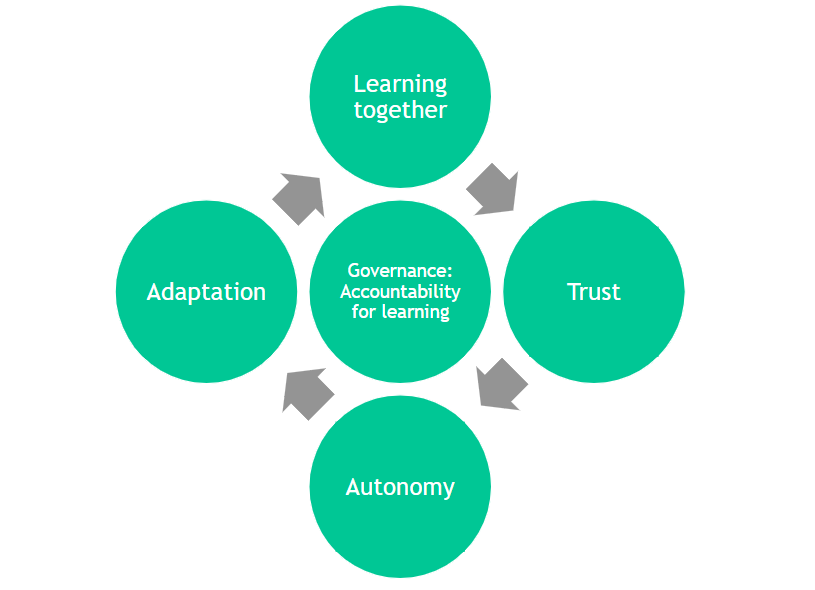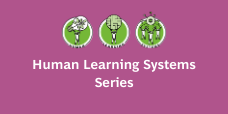
Beyond adaptation: lessons from the frontline on how shared learning fosters trust


Together w/ LearnAdapt & @FCDOGovUK, @CPI_foundation has been researching adaptive management programmes w/ implications for how #sharedlearning can foster trust
Share articleRead @CPI_foundation @FCDOGovUK & LearnAdapt's case study 'Adaptive Management Practice in the UK' through a @SystemsHuman lens #sharedlearning
Share article"The GPI & MUVA programmes use learning as their overall meta-strategy, so the primary job of leaders is to create & sustain #learningenvironments" @FCDOGovUK
Share articleWe put our vision for government into practice through learning partner projects that align with our values and help reimagine government so that it works for everyone.
At CPI, we have been exploring Human Learning Systems (HLS) as an emerging approach to public sector management, analysing many examples from the UK and elsewhere. We have recently taken a close interest in the way the UK’s Foreign, Commonwealth & Development Office (FCDO) has introduced adaptive management into its operations, and we wanted to examine this practice through the lens of HLS.
We partnered with LearnAdapt and the FCDO to research two of FCDO’s adaptive management programmes – Government Partnerships International (GPI) and MUVA. The GPI programme seeks to develop government capacity in countries such as Ghana, Kyrgyzstan and Nepal, taking a prominent role in projects ranging from education policy reform to frontier technology. MUVA, meanwhile, has developed 17 projects focused on female economic empowerment in Mozambique.
We conducted interviews with programme delivery staff, managers, and Senior Responsible Officers (SROs) from GPI and MUVA, and we wrote them up in a case study, Adaptive Management Practice in the UK Government. We’ve found that their approach has some fascinating implications for how shared learning can foster trust at the national government level.
As GPI’s Monitoring, Evaluation and Learning (MEL) team explained to us: “There’s no one tool or method that makes adaptive management work. It’s all about the ways of working. So much is about the team composition, soft skills, how you coordinate and collaborate.” They have backed this up by being very “participatory in the way that we do things.”
They have sought to understand – and adapt to – the unique contexts of the programme participants, delivering impact through understanding the complex needs of individuals, environment and systems. This was evident from their definition of successful outcomes, which adopt the participants’ perspectives rather than impose standardised metrics, such as KPIs, from the outside.
The MUVA team have also used participatory learning strategies, which help to build empathy. Each achievement is celebrated, the celebration often led by the participants themselves. For example, they designed their own graduation and leaving ceremonies, telling the stories of how they experienced the MUVA programme and how it had impacted their lives as young Mozambican women.
There’s no one tool or method that makes adaptive management work. It’s all about the ways of working. So much is about the team composition, soft skills, how you coordinate and collaborate.
The MUVA programme team were “given the task by FCDO of innovating in this space where nobody seems to have any answers. So they actually said to us, ‘we want you to innovate’.” Experimentation – together with learning and reflection – was an integral part of the process. This has led the delivery team to adopt a “positive error culture,” viewing failure as a necessary part of the experimental learning process.
The team were keen to point out that “we don’t pretend that everything works. We’re very open with our partners as well when things are not going well or when they’re not working as we thought they would, and when we need to change. And I think that openness and honesty is really key for building up trust.”
The success of adaptive management practices in MUVA depends on the programme team’s ability to create relationships of trust. In one intervention, they worked with a local industrial park to help businesses place disadvantaged young women in internship positions. As an SRO on the MUVA programme observed, “sometimes it's not about me doing something, but it’s about knowing someone in another space that could link with them and help them to achieve the results that they want to.”
The GPI and MUVA programmes use learning as their overall meta-strategy, so the primary job of those leading them is to create and sustain learning environments. The process of learning together, with tools and processes that encourage and enable empathy to be built between all the actors involved, creates trust to work towards the achievement of a shared purpose.

A key purpose of the learning and reflection spaces that programme managers and MEL teams have created is to build effective human relationships, cementing trust between the different actors involved in a programme. They enable these system actors to collect relevant data, share experiences, and collectively make sense of what has been happening.
Trust therefore becomes a key asset of the system – which is to be nurtured through all management decision-making and through openness and transparency. Relationships built on trust give autonomy to those working on the ground. They are trusted to respond to the ever-changing needs and strengths of the people they serve, and to adapt their work to the constantly changing environment in which they find themselves.
This adaptation is guided and governed as a constant learning process – in which each encounter and action is a learning opportunity. The GPI and MUVA programmes have succeeded in connecting practice-based learning with strategic learning, and made a shift from an accountability for results towards an accountability for learning. And driven by this type of accountability, these programmes have created a virtuous cycle of learning together, building trust, and creating autonomy.
Management of adaptive working requires a different set of skills, incentives and performance structures from more traditional programme management – staff must be comfortable with uncertainty, and able to innovate, experiment and learn.
How can these tools be stepping stones towards the evolution of more complexity-friendly tools in the future?
Currently, the effectiveness and scale of the adaptive management approach is often constrained within a New Public Management framework, and managers are obliged to use tools that are not always well adapted to complex environments. Whilst the use of familiar tools helps translate messages and create comfort, it also traps people by using tools which aren’t suitable for complex, dynamic environments. A key question would seem to be: how can these tools be stepping stones towards the evolution of more complexity-friendly tools in the future?
Our research has shown that the GPI and MUVA programme teams have responded exceptionally well to the challenge of adaptive management - even if the tools they are using aren't quite right. And while the FCDO’s innovative approach is still evolving and expanding, their programmes have been highly effective within complex international environments. CPI is continuing to explore how HLS can present an alternative way to do public management. We’ll soon be releasing our Living the New World Report which highlights a range of global examples of HLS in practice, so watch this space for more!

We’re exploring how Human Learning Systems can offer a complexity-friendly approach to public service delivery in line with our emerging vision for government. In this series, we highlight the stories of government changemakers who are pioneering this approach - their breakthrough moments, successes, and what they’ve learned from failure - as well as what we’re learning from them along the way.





